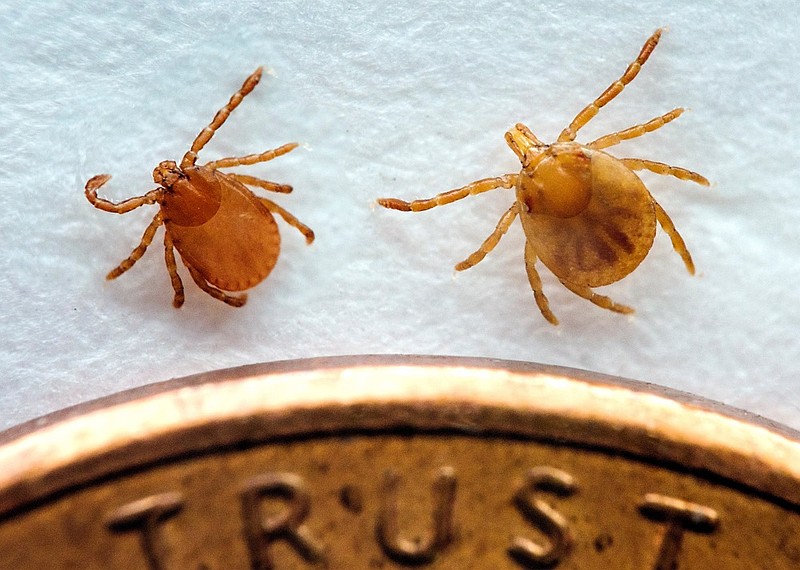Authorities announced on Friday that an invasive tick has been found in two Tennessee counties, according to a news release from the Tennessee Department of Agriculture.
Tips to prevent tick bites in animals and livestock
* Coordinate with your veterinarian to determine appropriate pest prevention for pets and livestock. * Check pets and livestock for ticks frequently. * Remove any ticks by pulling from the attachment site of the tick bite with tweezers. * Monitor your pets and livestock for any changes in health.
Two Asian longhorned ticks have been found on a dog in Union County, and five more have been found on a cow in Roane County. In the U.S., the tick has been found on 17 different mammal species.
The Asian longhorned tick has now spread to 11 states, but the Centers for Disease Control and Prevention reports that there is no evidence that the tick has transmitted pathogens to humans or animals in the U.S., the release states.
"Tennessee has a relatively large amount and variety of ticks," Dr. R.T. Trout Fryxell, Associate Professor of Medical and Veterinary Entomology for UTIA, said in the release. "It is important to be diligent and keep an eye out for all ticks because many varieties can transmit pathogens or cause painful bites."
Asian longhorned ticks were reported for the first time in the U.S. in 2017. A female can lay eggs and reproduce without mating, and up to thousands of them may be found at a time, or on an animal, according to the CDC's website.
If an animal is bitten by a tick, Fryxell suggests sealing the tick in a plastic bag, writing down the date and where the tick was most likely encountered before storing it in a freezer. Animal owners should bring the tick to a veterinarian if the animal shows any symptoms of a tick-borne disease, according to the release.
